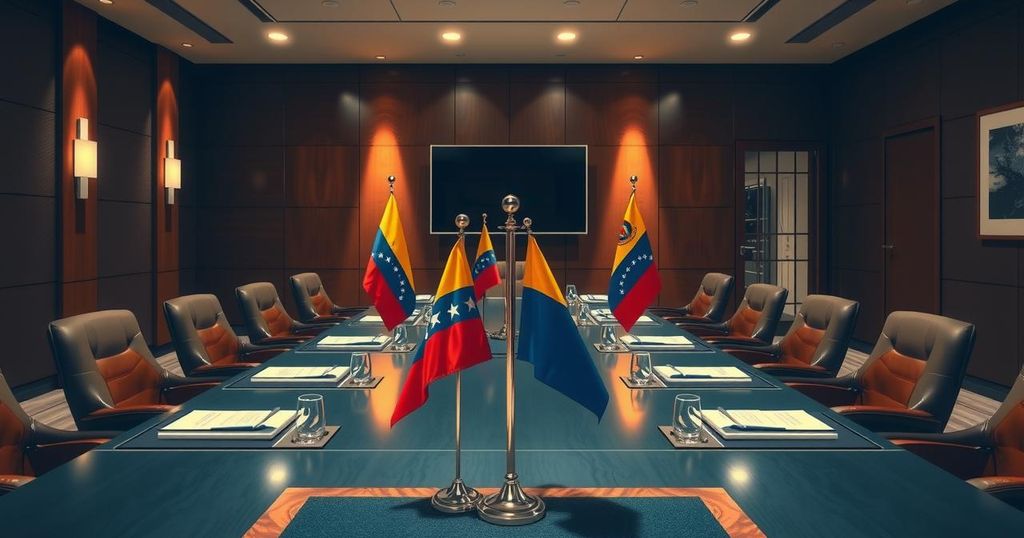This article encapsulates a recent Q&A session between César Trompiz, Venezuela’s Ambassador to Bolivia, and a North American delegation. Key topics included the evolution of communal governance, agricultural independence, relations with Bolivia and China, and the impact of U.S. sanctions. The ambassador provided a candid reflection on Venezuela’s socio-political landscape while addressing challenges faced by the nation.
On February 10, a North American delegation from the Alliance for Global Justice met with César Trompiz, the Venezuelan Ambassador to Bolivia, at the Embassy’s Plaza Hugo Chávez. The ambassador, who prefers open dialogue over prepared remarks, engaged the group in a two-hour Q&A session covering various topics including Venezuela’s political and economic situation.
Ambassador Trompiz provided insights about the state of Venezuelan communes, emphasizing their evolution from a dependency on oil revenue to a push for self-sustainability amidst challenges. He noted, “Not everything turned out well: Some of it went backwards. But social laws were passed, and fishing and farming benefited from them.”
He highlighted the significant strides made in local agriculture, with Venezuela now producing 90% of its food, decreasing reliance on foreign imports. The Ambassador cited his father’s transition to indigenous seeds as a notable example of this agricultural success and self-sufficiency.
Addressing concerns about recent elections, he expressed disappointment that leftist leaders like Gustavo Petro and Lula da Silva have publicly criticized the results returning Nicolás Maduro to the presidency. He contended that such criticisms reveal inconsistent alliances among leftist governments in Latin America.
The Ambassador praised relations between Venezuela and Bolivia, referencing historical ties originating from influential leaders Bolívar and Sucre. He reaffirmed mutual cooperation and noted expected visits between President Maduro and Bolivian officials soon.
Regarding military threats, he decried U.S. sanctions as acts of war contributing to significant loss of life. Trompiz reflected on the ongoing threats from the U.S., asserting that Venezuela now possesses trained defense forces ready to protect their sovereignty: “If the U.S. touches our country, they will not take one drop of our oil.”
Trompiz explained Venezuela’s relationship with China as pragmatic and beneficial, unfettered by political conditions. China is seen as a valuable business partner, aiding economic development without imposing restrictions contrary to dealings with the U.S. and EU.
He remarked on the ongoing economic migration of Venezuelans, claiming that many are returning due to stabilization efforts domestically, refuting the seven million figure often cited. The ambassador expressed concerns about U.S. nationalism evolving towards fascism and the implications for economic relations and migration policy.
As the session drew to a close, the delegation expressed gratitude to Ambassador Trompiz for his insights, reflecting on the complexity of Venezuelan affairs and the impact of global dynamics on local conditions.
In conclusion, the dialogue with Ambassador César Trompiz highlighted significant developments in Venezuela’s socio-economic landscape, particularly the shift towards self-sustainability in agriculture and community governance. The discussion underscored the intricate relationship Venezuela maintains with Bolivia and its strategic partnerships with countries like China. Furthermore, it revealed the ambassador’s concerns regarding foreign intervention and regional political dynamics, while echoing a commitment to adaptive resilience in the face of external pressures and sanctions. This meeting offered valuable insights into Venezuela’s ongoing efforts to navigate its challenges against various geopolitical backdrops.
Original Source: peoplesworld.org




